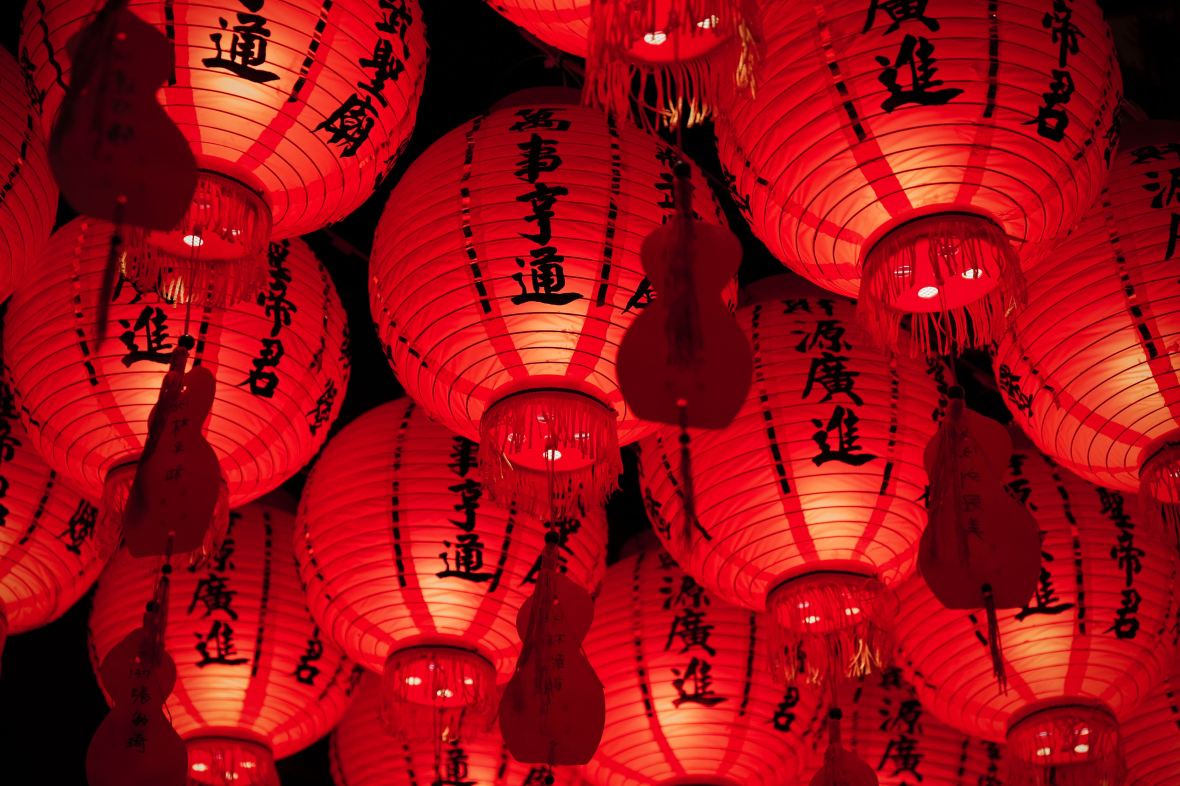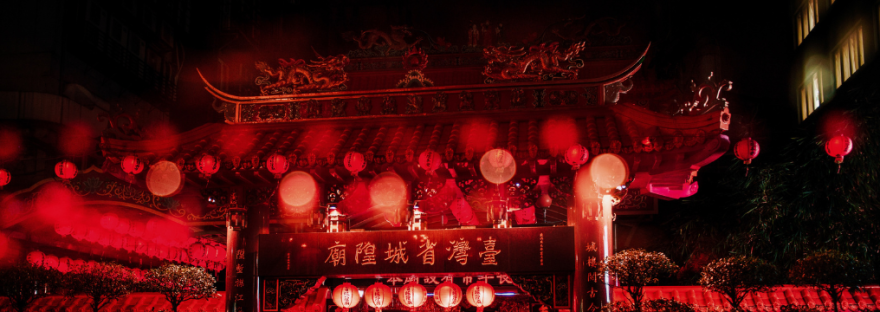Ghost Month (中元節 – ㄓㄨㄥ ㄩㄢˊ ㄐㄧㄝˊ), a fascinating and significant festival in Taiwan, holds a deep-rooted cultural significance. This traditional event is a time of remembrance, respect, and reverence for ancestral spirits.

As we approach Ghost Month in 2023, let us delve into the origins of this unique festival, explore the timeline of its observance, learn about the customs and activities involved, and understand the dos and don’ts during this auspicious period. Join us on this journey to uncover the rich Chinese heritage of Ghost Month in Taiwan.
Origins of the Ghost Month
The origins of Ghost Month can be traced back to ancient Chinese folklore and religious beliefs. Rooted in Taoism and Buddhism, this festival revolves around the idea that during the seventh month of the lunar calendar, the gates of the afterlife open, allowing spirits and ghosts to return to the mortal world. These wandering souls seek solace, offerings, and warmth from their living descendants.
According to legend, the concept of Ghost Month can be attributed to the Buddhist disciple Maudgalyayana. As the story goes, Maudgalyayana used his supernatural powers to save his mother from the realms of suffering after discovering her plight in the afterlife. Grateful for his assistance, the deities granted him permission to liberate countless other souls during the seventh lunar month. This act of filial piety later evolved into the festival we know today as Ghost Month.

Timeline of the Ghost Month
In the year 2023, Ghost Month in Taiwan is expected to begin on August 16th and conclude on September 14th. However, it’s essential to note that the dates may vary each year due to the lunar calendar. The festivities typically last for 30 days.
Here are the most significant days of the festival;
- First day of the month: Opening the Temple Gate : The month begins with the symbolic act of opening the gate of a temple, representing the gates of hell.
- Twelfth day: Lighting of Altar Lamps : On the twelfth day, the main altar is adorned with the warm glow of lit lamps, signifying a connection with the spiritual realm.
- Thirteenth day: Lantern Procession : A procession of lanterns takes place on the thirteenth day, where people carry beautifully crafted lanterns through the streets, illuminating the path and invoking a sense of spiritual presence.
- Fourteenth day: Water Lantern Parade : The fourteenth day witnesses a vibrant parade dedicated to releasing water lanterns. These lanterns, adorned with heartfelt wishes, float on water bodies, symbolizing the release of one’s troubles and sending messages to departed spirits.
- Ghost Month End Day : Once again, the gates of Hell shut, prompting the remaining spirits to retreat to their spiritual domain.

What is the Purpose of the Ghost Festival?
The Ghost Festival holds a profound purpose: to alleviate the suffering of wandering souls in purgatory. Through acts of charity and virtue, the living seek to provide redemption and comfort to these restless spirits.
During the Ghost Month, the actions of the living directly influence the fate of the departed. The more virtuous deeds performed, the stronger the impact on amnesty and salvation. This collective goodwill helps liberate souls from limbo, guiding them towards reincarnation.
This practice is embodied in “超渡 – ㄔㄠ ㄉㄨˋ,” a concept rooted in Taoism and Buddhism. By offering kindness, prayers, and offerings, the departed souls find solace and a better existence.

How is the Festival Celebrated in Taiwan?
Ghost Month is a time of vibrant celebrations and rituals in Taiwan. Throughout the month, various activities and events take place to honor the deceased and ensure their well-being in the afterlife. Some common customs include:
- Offerings and Worship: Families set up altars laden with offerings such as fruits, incense, and other favorite foods of their departed loved ones. These offerings are meant to nourish and appease the visiting spirits.
- Lantern Festivals: Elaborate lantern processions are held in towns and cities across Taiwan. People carry colorful lanterns shaped like lotus flowers and other religious symbols to guide the spirits back to the afterlife.
- Chinese Opera and Performances: Traditional Chinese opera performances are held in open spaces to entertain both the living and the deceased. It is believed that spirits enjoy these performances, and it also brings good luck to the living.
- Burning of Ghost Money: Also known as “Joss paper,” ghost money is burned as an offering to provide financial assistance to the spirits in the afterlife.
- Floating Water Lanterns: Water lanterns with lit candles are set adrift on rivers and lakes, symbolizing the journey of the spirits back to the other realm.

What Aren’t You Allowed to Do During Ghost Month?
Ghost Month comes with a set of strict taboos to avoid attracting the attention of malevolent spirits and bringing bad luck. Some things to refrain from during this period include:
- Avoid Whistling at Night: Whistling is believed to attract wandering spirits and can bring misfortune upon the person whistling.
- No Swimming: It is considered risky to swim during Ghost Month, as malevolent spirits might lurk in the water and harm swimmers.
- Avoid Outdoor Activities at Night: To prevent encountering wandering spirits, it’s best to stay indoors during the evening and night.
- Refrain from Taking Photos at Night: It is believed that spirits might be accidentally captured in photographs taken at night, leading to undesirable consequences.
- Avoid Isolated Places: It’s advisable to steer clear of graveyards, isolated mountain areas, deserted buildings or places.
- Avoid the Use of the Word “Ghost (鬼)”: To avoid offending the spirits, refrain from referring to them as ghosts; instead, address them as “好兄弟” (Good brothers).
- Avoid Getting Married, Buying Cars, or Buying Houses : You wouldn’t want bad spirits to attend your wedding or take the risk of purchasing a haunted house or car, would you?

Chinese Vocabulary Related to Ghost Month
| Chinese | Bopomofo | Pinyin | English Meaning |
|---|---|---|---|
| 鬼 | ㄍㄨㄟˇ | guǐ | Ghost |
| 好兄弟 | hǎo xiōng dì | ㄏㄠˇ ㄒㄩㄥ ㄉㄧˋ | Good brothers (other name to refer to ghosts during the Ghost Month) |
| 鬼月 | 鬼月 | guǐ yuè | Ghost Month |
| 中元節 | ㄓㄨㄥ ㄩㄢˊ ㄐㄧㄝˊ | zhōng yuán jié | Mid-Yuan Festival (another name for Ghost Month) |
| 七月半 | ㄑㄧ ㄩㄝˋ ㄅㄢˋ | qī yuè bàn | July 15th of the lunar calendar (another name for Ghost Month) |
| 鬼門 | ㄍㄨㄟˇ ㄇㄣˊ | guǐ mén | The Ghost Gates |
| 目蓮救母 | Mù lián jiù mǔ | mù lián jiù mǔ | Maudgalyayana |
| 超度 | ㄔㄠ ㄉㄨˋ | chāo dù | To offer salvation or liberation to spirits |
Ghost Month in Taiwan is not just a series of rituals but a deep-rooted cultural expression of love, respect, and remembrance for departed ancestors. As we approach Ghost Month in 2023, let us embrace this unique festival, understanding its origins, customs, and significance in the Taiwanese community. By participating in the celebrations while adhering to the traditional customs, we pay homage to the past and ensure a harmonious connection with both the living and the deceased.

